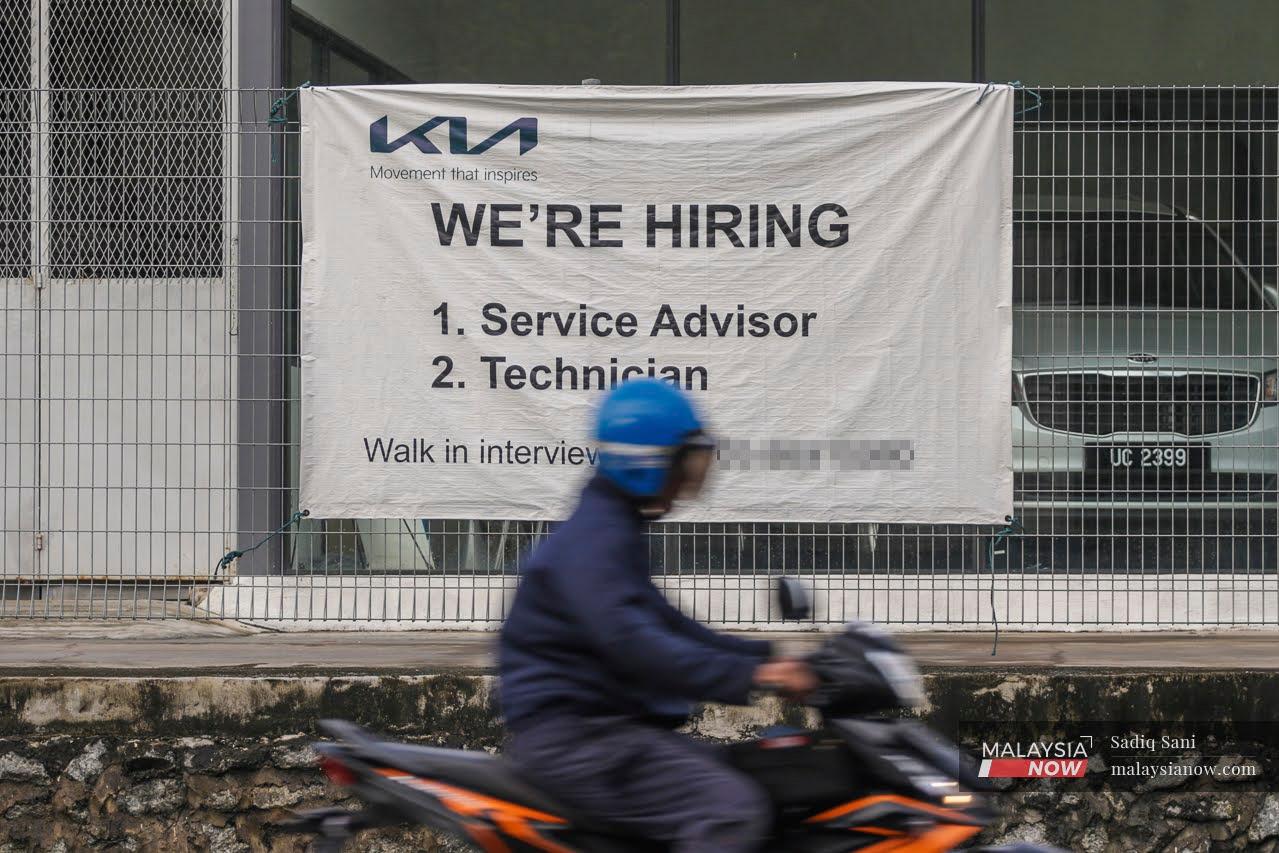Post-pandemic, jobs abound but workers in short supply
Employers are having a hard time finding workers, even though they offer attractive salaries.
Just In
When the Covid-19 pandemic began spreading throughout the world in early 2020, one of the most pressing problems was the shutdown of entire economies which saw millions retrenched as businesses closed and operations were forced to trim their ranks.
In Malaysia alone, nearly 100,000 people lost their jobs from the start of the first movement control order (MCO) in March 2020 until the end of November that year.
But today, as the economy reopens and Malaysia joins the stream of countries making their way towards the endemic phase of Covid-19, the opposite seems to be the case.
Companies across the board have been advertising for workers, but applicants are few and far in between.
Just over two years since the onset of the pandemic in the country, Malaysia is facing a cross-sectoral shortage of labour that has already caused billions in losses due to uncollected revenue and rejected orders.
Mohd Izham Fahmi Yaakob, who runs restaurants in Puncak Alam and Sungai Buloh in Selangor, has been struggling to find workers since the MCO.
He needs 16 workers at each restaurant in order to function at full capacity, but now he has only eight including himself and his wife.
“There were always problems with manpower, but it’s much more apparent now,” he said.
“They work for a short while and then they quit.”
Such problems are evident even at larger outfits such as Kanna Curry House in Petaling Jaya which recently began offering iPhones to workers who stay for a minimum of six months.
At his much smaller organisation, Izham cannot find skilled workers even though he is willing to pay them well.
“I offer good salaries, at least RM70 a day. Per month, they can make almost RM2,000,” he said.
“Some of them even earn RM3,000 but they are irregular in their work.”
At his restaurants, the cooks make the most – RM200 per day. This means that they can earn between RM4,000 and RM5,000 a month.
But even this is not enough to make workers stay.
Economist Amanda Yeo said some people were beginning to appreciate the freedom and autonomy of the gig economy as this did not involve strict office hours.
“They have the flexibility to work anywhere and at any time,” Yeo, of think tank Emir Research, said.
She said such changes in career perceptions were in line with findings by human resources agency Randstad, which recently found that nine out of 10 now chose to take matters into their own hands with 44% working flexible time slots and 33% working from home more often.
These changes in turn put employers in a bind, she added.
For example, workers in the hospitality industry who were laid off during the pandemic were less likely to return to work in the field, while companies and hotel owners found it difficult to increase salaries beyond the minimum wage of RM1,500 without incurring additional costs.
She said the rejection of job offers, even with attractive salaries, was linked to technological advances.
Millenials and those in Gen Z, for instance, preferred platforms and digital applications to introduce new and innovative business ideas.
“Their different approach to work compared to the previous generations will transform the future of the work landscape in the next decade,” Yeo said.
“A combination of the concepts of work and play means that they have the flexibility to have fun or earn enough money without the restrictions of time and geographical boundaries.”
For Izham, attitude also goes a long way in determining whether a person will stay or leave.
“Some of them leave because they are just too interested in playing with their phones, especially the young ones,” he said.
“The older ones, some of them come back to ask me for their jobs back after working with someone else for a while and realising that they don’t like it there.”
Subscribe to our newsletter
To be updated with all the latest news and analyses daily.
